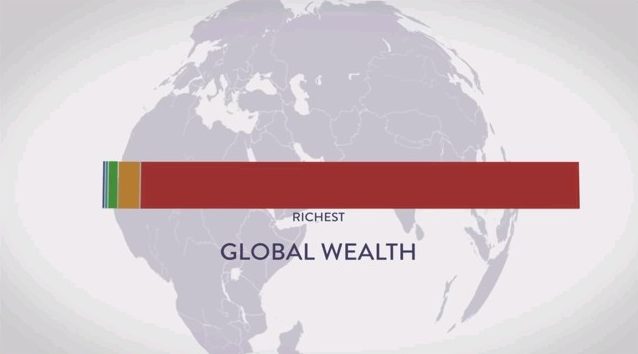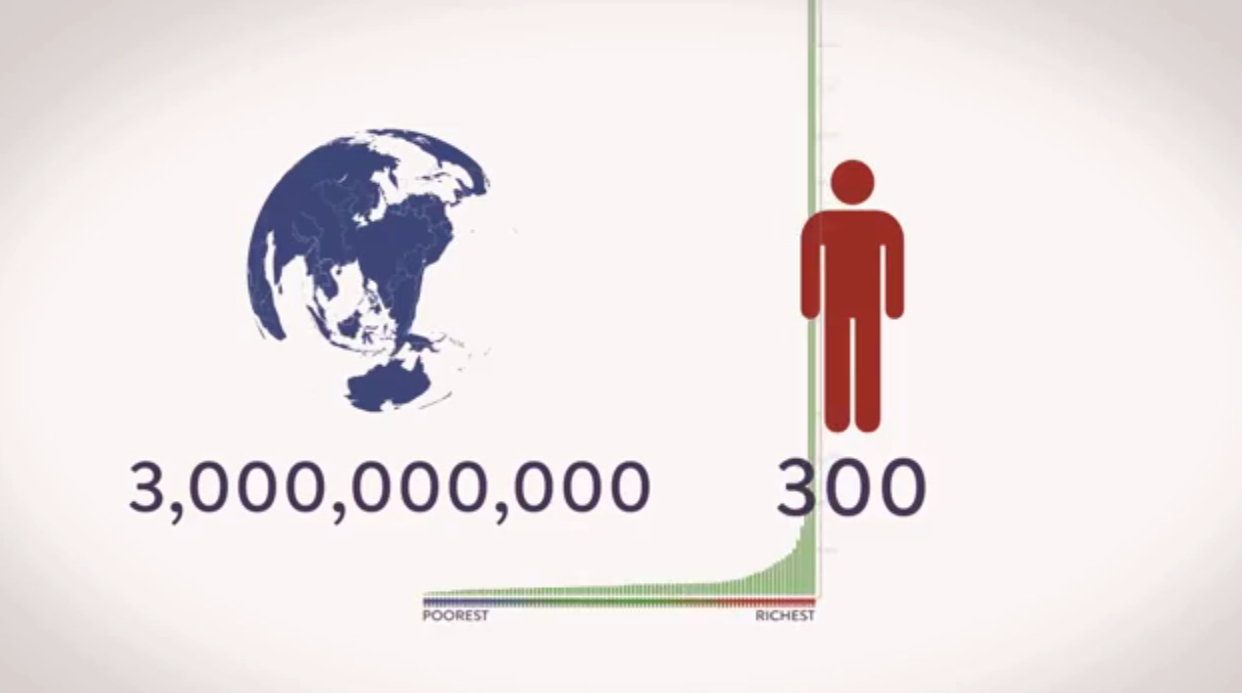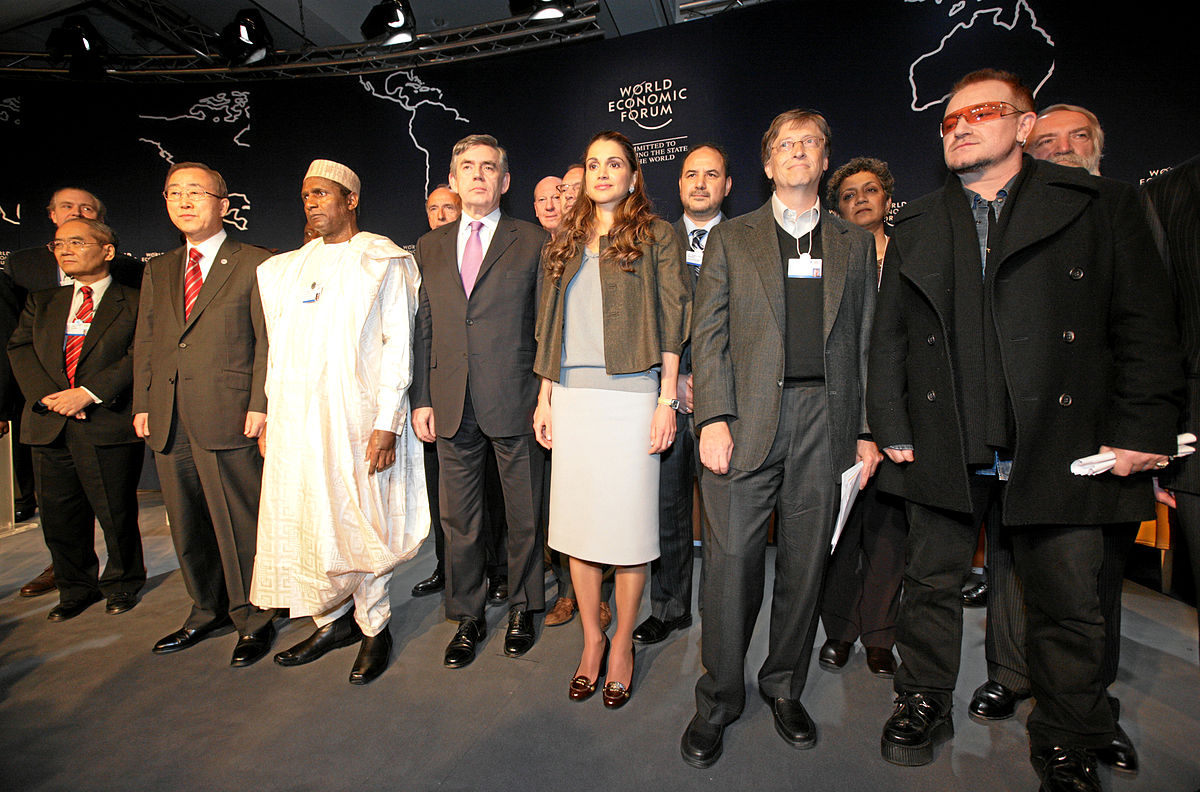
The 21st Century is a time of great converging challenges—we need to think, feel and act systemically like never before in our history. In reality the threats are all connected, yet we continue to deal with them separately in a piecemeal fashion. This simply will not be good enough.
Climate change cannot be addressed in isolation from the wealth-hoarding of capitalism that has made the world so unequal that a mere 62 individuals have the same aggregate wealth as 3.7 billion. Terrorism cannot be tackled in the absence of deep inquiries about what happens when money is treated as more sacred than life or spiritual tradition. Political corruption cannot be wrangled in without taking account of the commercialization of electionsthat treats each candidate like yet-another-product to be bought and sold in the marketplace of ideas.
And so on and so forth…
Mystics throughout the ages have told us that separation is an illusion. Western science has come to the same conclusion with the discoveries in quantum mechanics showing how the great diversity of distinct objects we perceive are, deep down, interwoven patterns of energy that cannot be fundamentally divided into pieces. Similarly, the findings of Darwinian evolution tell us that all life is connected in a woven tapestry of mothers birthing daughters in an unbroken thread for 3.6 billion years that gives us a web of life on Earth. Psychologists and sociologists remind us that there is no monolithic self (the Buddha was right!) as we observe how social norms shape and influence our behavior in profound and powerful ways. We are social networks functioning as tribal groups.
These truths—whether garnered from spiritual practice or the empiricism of scientific inquiry—are a reminder that all apparent differences arise from a prior unity that often remains hidden from view. Everything IS connected. And we must hold this truth in mind as we go about the business of transitioning our civilization away from its runaway growth curve of mass consumption. The Earth is finite and there are boundaries which we must not cross if we want to continue to be part of the cosmic dance that is life on this beautiful planet.
More specifically, the local struggles in different places around the world are also connected. Peasant farmers kicked off their land in India share a common plight with sex workers trafficked into the Netherlands alongside illicit flows of money, drugs, and guns. Rising food prices in Mexico are linked to the explosion of student loan debt in the United States. The Syrian refugee crisis in Europe is linked to chronic droughts in the Middle East over the last few decades which were shaped and influenced by factory pollution during Western industrialization. And these patterns of human displacement are meshed together with the empire-building of the United States in its unquenchable thirst for control of the world’s oil supply.
We could easily let this massive clockwork of complexity overwhelm us. If it’s all connected, where and how shall I intervene? Isn’t it all too big for me to do anything about? Again, this is the beauty of interdependence. Tug at the right piece of frayed string and the whole rug will unravel before you. In the case of the global economy, there happens to be a singular string that ties it all together—the central logic of growth at all costs that says the only measure of progress is rising GDP (Gross Domestic Product, the aggregate price of all goods bought and sold during a given period of time).
We have been told that the only way to end poverty is to grow our way out of it. That all boats will be lifted with the rising tide of consumer purchases. Yet this half-truth deceives in at least two ways—having to do with dots that are not connected by their arguments—the first being that many valuable human activities do not involve the exchange of money (mothering, for example). The second is the biological fact that some kinds of growth are good for an organism while others are not. Growing up to be healthy and strong is good. Runaway cancer in the bowels will probably kill you.
Humanity needs to think systemically. We need to act from a place of holistic insight. And we need to do so collectively, as the singular humanity of 7.4 billion souls living together with the rest of our biological kin here in Earth. A good place to start is by acknowledging prior unity and then immediately going about dismantling the logic of economic growth. Tug on this narrative string and the rest of the story gets weaker. Pull enough of it out and you can begin threading it into a different story, one that recognizes our common plight and holds up life as the sacred principle at the heart of it all.
But to do so, we’ll have to connect the dots.
Onward, fellow humans.









Leave a Comment